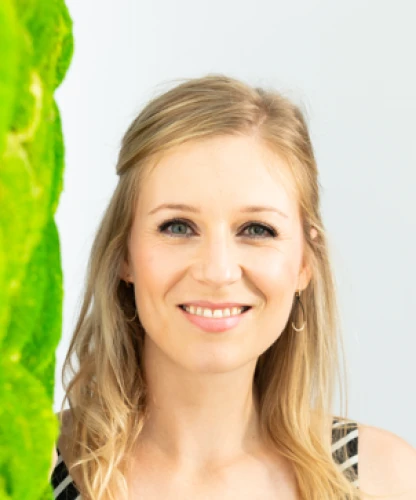Can you really work from a coffee shop?
HOME / / Can you really work from a coffee shop?
Team Transmit are big fans of flexible working
We’re also big fans of coffee, conversation, and of creating the conditions you need to do your best work - however unconventional they might be.
Our team embraces neurodiversity and recognises that different working locations suit different people.
Since we’re in the business of helping anyone who wants to be their own boss to access the tools and support they need to succeed, let’s look at why basing yourself from your local café could be a great way to get your business ideas percolating.

Do coffee shops make you more creative?
In a word: yes! There’s a large cup brimming with science and history to prove it.
According to Reader's Digest:
“There is a palpable, productive, caffeinated energy in the air, an invisible camaraderie that cannot exist in the quiet of a home office.”
Coffee shops have been a thing for longer than you’d think. The first coffee house in England opened in 1650 and it’s still there: The Grand Café in Oxford.
Prices may have gone up a smidge.
Before coffee (and tea) spread through British culture, the daytime beverage of choice was alcohol. This was considered the “healthy choice”, because water was unsafe to drink.
Beer with breakfast and wine with lunch don’t often lead us to make the best decision or have the most inspired ideas! But unlike alcohol - which is a depressant - caffeine (the chemical that occurs naturally in coffee) is a stimulant.
Caffeine makes us feel sharper and more alert. It’s therefore no coincidence that when British people switched from alcohol to coffee during the day, a lot of innovation occurred.
But there’s more to it than just changing what was in peoples’ cups...
Coffee houses brought people together from different backgrounds and cultures and created a space for discussion.
The London Stock Exchange started out as a collection of coffee houses around the City where merchants and brokers met up to arrange deals.
Coffee houses became known as the places where people could meet, talk and share their ideas. We now understand that an idea is not a single thought, but is actually a network of neurons in your brain connecting in a new way.
Being around other people and their ideas (you guessed it - networking) helps you and your brain!

If you’d like to hear more about where good ideas come from, watch this Ted Talk by author Steven Johnson.
So there’s the coffee itself which stimulates your thinking, plus the opportunity to bounce your business ideas around with other people… what else makes it a great place to work from?
The perfect noise level
Researchers from the university of Illinois tested the effect of different noise levels on the ability of their subjects to brainstorm product ideas. They found that the level of noise that matches the bustle of a coffee shop–around 70 decibels–spurs more creative performance than the quiet of 50 decibels or the distracting blender volume of 85 decibels.
Why? Because although extreme quiet can help you focus, it limits creative thinking.
A bit of background noise, a degree or distraction, and a cup or two of conversation can help get you thinking on a more abstract level. And that could lead to a brilliant business idea.
To try it out, you can play recorded tracks of coffee shop background noise on coffitivity.com.

How to set up your startup remotely
If you’re in the early stages of starting your own business and don’t yet need a premises, working remotely from a coffee shop could be the perfect place to get going.
If you’re getting ready to apply for a Start Up Loan, reading through the contents of our Be Your Own Boss crate over a brew could significantly increase your chances of being approved for finance.
The initial stages of your application can all be done online, so as long as you can hop on the café’s wifi, you’ll be able to:
And don’t forget the important part your local coffee shop will play in serving up potential customers, investors or business partners from your local community. If you have an office set up at home or access to a shared workspace, basing yourself out of a café once or twice a week will provide opportunities to develop your networking skills in a relaxed environment, as well as the perfect creative blend of background noise.
It’s not just us…
It's quite widely known that J.K. Rowling wrote most of the Harry Potter books in cafés around Edinburgh during a tough period in her life.
Her marriage had broken down, her mother had died, she had a young daughter to take care of, and little money. She lived off benefits and worked on the book while her little girl slept. She also sought treatment for depression during this time.
J.K Rowling said:
“It’s no secret that the best place to write, in my opinion, is in a café. You don’t have to make your own coffee, you don’t have to feel like you’re in solitary confinement and if you have writers’ block, you can get up and walk to the next café while giving your batteries time to recharge and brain time to think. The best writing café is crowded enough to allow you blend in, but not too crowded that you have to share a table with someone else.”
The late father of Microsoft’s founder Bill Gates made his local Burgermaster into his office for many years.
Whilst working for his son’s charitable foundation, Bill Gates Senior even received mail addressed to him at the Burgermaster outlet! To his friends, the retired lawyer was known as MacroBill and his son as MicroBill - the computer nerd who became a billionaire and one of the world's most generous philanthropists.
As co-founder of the foundation, Bill Senior described working from the burger restaurant next to Microsoft’s building in Seattle as “having the time of my life”. It was reported that despite his family’s huge wealth, Bill Sr. still turned the lights off every time he left a room - a lesson from the Great Depression.
A less well known story is that of Josh Gill who set up a fast-growing water retail firm The Everflow Group from a café when he was 28 years old.
His company came third in the the Financial Times’ 2020 list of Europe’s top 1,000 growing businesses. Josh is featured in a list of Teesside's savviest entrepreneurs proving that entrepreneurship often comes from humble beginnings.
Our friends at Smarta love coffee so much it’s become a bit of a theme..
If you're in the early years of business ownership, check out these free business resources:
How to arm your business with organisational resilience
The one thing every entrepreneur needs (apart from caffeine)

"We’re delighted to be the 2000th loan recipients!"
